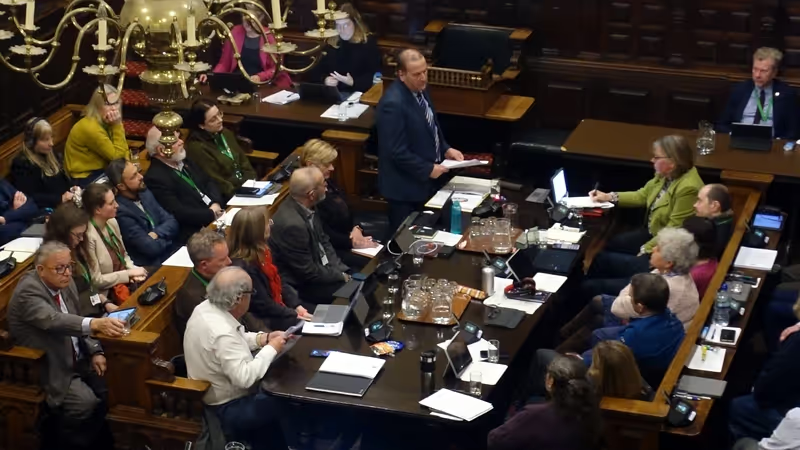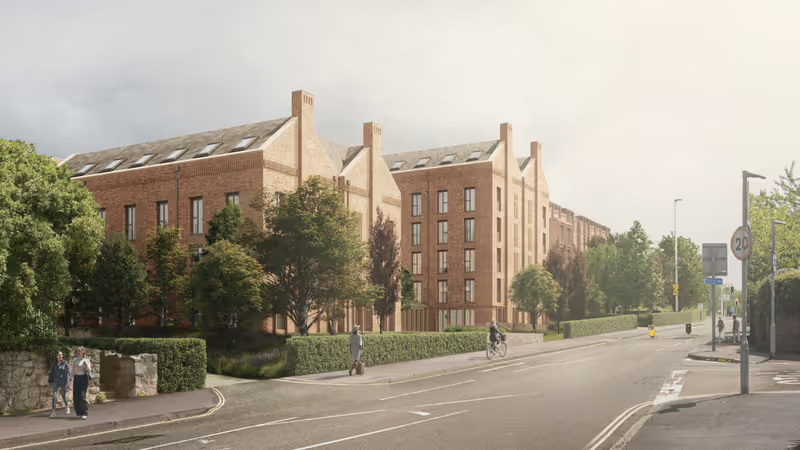The University of Exeter has released figures for the number of students based at Exeter campuses in response to a sequence of freedom of information requests submitted by Exeter Observer. They confirm that its published student numbers have consistently and significantly understated the true picture for more than twenty years.
The figures show that there were between 7,500 and 12,000 more students in the city each year between 2000-1 and 2021-22 than the Full-Time Equivalent (FTE) student numbers published by the university and reported to the Higher Education Statistics Agency.
(FTE student numbers combine full-time and part-time students into a single total used for planning educational provision, not accommodation, although the university does not explain this anywhere on its “facts and figures” page.)
Last year the university reported that there were 27,276 FTE students based at its Streatham and St Luke’s campuses but a freedom of information request confirmed that there were actually 39,450 students based at its Exeter campuses that year, a difference of more than 11,500.
Other freedom of information requests combined with a range of sources including University of Exeter annual reports and financial statements and Higher Education Statistics Agency data have provided a complete picture covering the past 22 years, with the exception of 2004-5.
For eleven of these years the difference between the published and true numbers was more than 10,000. In all but one year it was at least 8,000. The largest discrepancy was 12,149 in 2007-8.
The significant fall in numbers this year follows two years in which university places were oversubscribed as a result of teacher assessment-driven grade inflation following the cancellation of A-level exams in 2020 and 2021 due to the pandemic. This led to a surge in students gaining undergraduate places at universities with more competitive entrance requirements.
A fall in Exeter undergraduate numbers was expected after OFQUAL intervened to deflate grades to their pre-pandemic levels over two years, affecting the 2022 and 2023 results. The University of Exeter accordingly made fewer offers for entry this year, although more than half of the drop in this year’s numbers was accounted for by a fall in postgraduate students.
These changes nevertheless do not account for the sudden convergence of the university’s published FTE numbers with the true figures obtained via freedom of information requests.
Until this year its FTE numbers were, at first, consistently lower than even the true number of full-time undergraduates, then consistently lower than the true number of full-time undergraduates and postgraduates combined, entailing that they were false in both cases.
This is the first year in which its FTE numbers exceed the combined true full-time numbers and account for a portion of the part-time numbers, as should have been the case in every previous year. It is only since the true numbers have been made available via freedom of information requests that the university has altered its published figures in this way.
While the university can choose what to publish on its website and in its annual reports, its obligations under the Freedom of Information Act 2000 are legally binding. It is a criminal offence to alter or conceal information held by public authorities (including the university) with the intention of preventing disclosure following a request for the information under the Act.
The university also provides these FTE numbers to the city council to inform its planning policies related to Exeter student accommodation despite them being of little use for this purpose.
To estimate the extent to which Exeter’s residential housing stock is occupied by students the council has instead relied on student council tax exemption records as part of a matrix of faulty premises, inaccurate information and miscalculated projections on which it has been basing its student accommodation policies.
However the Office for National Statistics concluded in 2021 that council tax records cannot be relied on for this purpose after it found that only 12% of students live in addresses solely occupied by students and around 30% live in addresses that appear to be made up of students and non-students. It also found that only half of all student addresses have any indication on council tax that students live there.
The new Exeter Local Plan is soon to replace the city’s existing student accommodation policies but the outline draft version on which the council held a public consultation last autumn has nothing to say about these issues.
The council’s current policies rely on the construction of Purpose Built Student Accommodation (PBSA) to mitigate the impact of university expansion on the city’s housing stock, but no evidence has ever been provided as a basis for this policy, while the growth in university student numbers has been consistently underestimated and misrepresented.
To make matters worse, many of the privately-provided student accommodation blocks that have sprung up across the city in recent years are estimated to be only around 70% occupied, leaving 58% of Exeter’s university students living in the city’s residential housing stock.
Neither council tax records nor PBSA occupancy estimates are sufficiently accurate to provide a basis for the effective student accommodation policies the city needs in response to the university’s impact on the city’s residential housing stock, should the council wish to adopt some.
We therefore asked the university, again citing freedom of information legislation, to tell us how many students lived in university- and privately-provided PBSA during the 2021-22 academic year.
These figures could be combined with its other freedom of information responses to determine how many of its Exeter-based students lived in private residential housing stock that year too.
We believe around 29,000 students occupied around 8,250 dwellings in 2021-22 which could otherwise have been used for residential housing by local people, but we know that the university knows exactly how many and think that it should come clean on this too.
We began our pursuit of this information last August. The university has been by turns evasive, defiant and silent in response.
As a result, after Information Commissioner’s Office investigation, our public interest quest to publish the truth about the university’s impact on the city’s housing supply has led us to a First-tier Information Rights Tribunal where a judge will decide the case sometime in the next few weeks.










